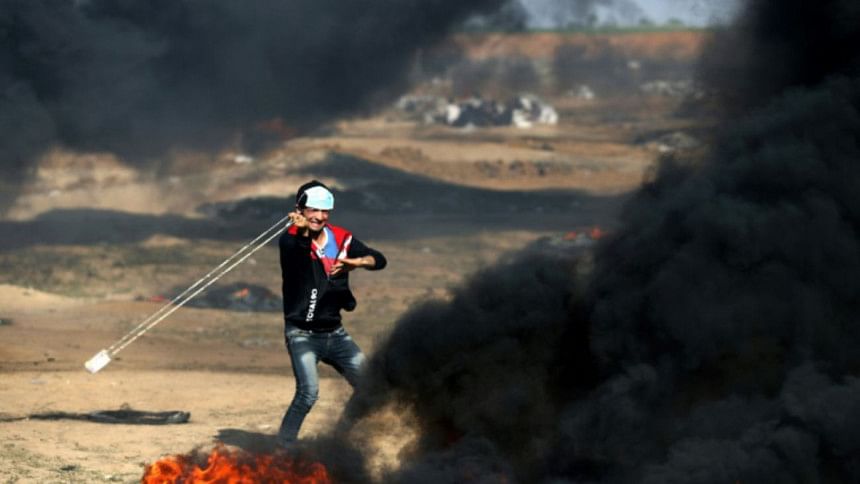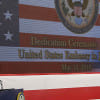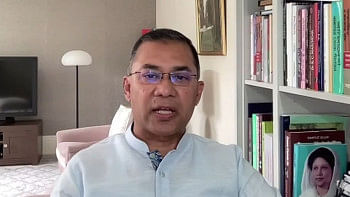Jerusalem - “A day which will live in infamy” (. . . if history is any guide)

US President Donald J Trump did not mince his words: President Harry S Truman, a Democrat, made the United States the first country to recognise Israel's statehood (May 14, 1948), yet his own December 6, 2017 decision to shift the US embassy to Jerusalem, the first country to do so, on May 14, 2018, may have converted the logical 1948 recognition decision into a 2018 conflict invitation. If not he himself, future historians may find President Franklin D Roosevelt's December 8, 1941 apt response to the Pearl Harbour attack the day before, "a day which will live in infamy," resonating with Jerusalem's latest identity
History suggests nothing less. In its 4,000 years of recorded history, the fabled yet divided city has been ruled, among others, by Egyptians, Assyrians, Babylonians, Persians, Romans, Byzantines, Umayyad and Abbasids, European crusaders, Mamlukes and Ottomans, and the British, fairly much in that rough chronological order, before this second Jewish return began, in fits and starts, from 1896. That was the year Theodor Herzl's Der Judenstaat (The Jewish State), rallied a Diaspora group wandering for almost two millennia. Advocating aliyah for his persecuted European co-religionists, that is a return (literally, "going up") to the Holy Land of Israel, much of which the Arabs called Palestine, Herzl mobilised 60,000 Jews within Palestine to turn the tide against 600,000-plus Muslims and almost 100,000 Christians living in peace with each other.
Converting Jerusalem into Israel's capital (a) completely quashes almost four-decades of oftentimes breath-taking peace negotiations in which US Democrats played a leading role; (b) exposes US mediation ultimately being too hollow to salvage its Middle East respect; (c) paves a familiar drum-beating route to war and destruction of another Muslim country in the region; (d) deepens not only a transatlantic divide, but also another across the English Channel; and (e) harkens an even more unsavoury historical reminder of Israeli rebirth and another Temple Mount restoration.
Ever since ex-US President Jimmy Carter converted an Egyptian military general, Anwar Sadat, and a former Israeli terrorist (of 1940s infamy), Menachem Begin, into the September 1978 Camp David peace talks (with each winning a Nobel Peace Prize, two for directly addressing Palestine issues), that process eventually produced the 1993 two-state Oslo Accords with peacemakers from Europe bringing Israelis and Palestinians together (and which led next year for Yasser Arafat, as well as Israel's Prime Minister Yitzhak Rabin and Foreign Minister Shimon Peres, to also receive the Nobel Peace Prize). September that year highlighted Arafat and Peres shaking hands in the White House lawn after signing those accords against a beaming US President looking on.
Rabin's November 1995 assassination exposed the gathering clouds. Using Israel's "Law of Return", the million-plus post-Soviet Union Jewish aliyah to Israel began the process of unsettling the Oslo Accords by again seizing Palestinian land. Three-quarters of Israel's population, of nearly 9 million today, stand as Jews, many, especially new immigrants, behaving like their 1996-9 and 2009-18 prime minister, Benjamin Netanyahu, as 125 percent Israelis, that is, as over-exaggerated nationalists. It is small wonder, then, that when US President Barack Obama tried to jumpstart peace in 2009, he was effectively stumped by Israel before he even got started. With no recent Republican seeking a Middle East balance, the pro-Israel US tilt, whetted by AIPAC (American Israel Political Action Committee) funds in the US Congress, awaited a Trump-like salesman.
Palestinians were also drifting in the opposite direction. Those in the West Bank and east Jerusalem celebrated 9/11 events against a seething US public. When George W Bush targeted Saddam Hussein in 2003 (because he "tried to kill my dad"), "filial revenge" culminated in war, setting a model for Trump to follow. By abandoning the P5+1 2015 denuclearisation agreement with Iran this year, he, most likely instigated by Netanyahu, who praises Trump no end, is out fully baiting Iran. Sending his daughter, Ivanka, and Jewish son-in-law, Jared Kushner as his US embassy-shift representatives to Jerusalem, he provoked the Palestinians to protest. Almost 60 died by police-fire during the ceremony, all this just after Israel bombed alleged Iranian facilities in Syria. If one recalls how the false accusation of Iraq possessing weapons of mass destruction (WMDs) provoked the 2003 invasion, then the charges against Iran that even other P5+1 countries do not believe, may only be a step away from an Israel/US air attack on Iran's nuclear sites.
Vehemently opposing the US war preparation in 2003, France and Germany did not join the US "Coalition of the Willing" against Iraq, leaving Tony Blair's Great Britain and Poland to participate or sympathise. A similar European split may be globalising in the wake of the Jerusalem embassy crisis: though Guatemala and Paraguay have agreed to follow the United States, those two countries, France and Germany, will not shift their embassies. Britain not doing so may become more a function of Prime Minister Theresa May's hand being considerably weakened by the Brexit vote leftovers (or hangovers) than a desire to not follow its notorious historical role encouraging Jewish aliyahs, particularly through the 1917 Balfour Declaration, to a Jewish "national homeland" in Palestine: it was under the British watch, as a League of Nations mandate, that Jewish immigrants not only evicted 750,000 Palestinians by 1948, creating an unending nakba (nightmare): another million Palestinians have also been evicted since 1948.
Recreating a Third Temple Mount may be in the works. Babylon's Nebuchadnezzar destroyed the first one more than a half millennium before the birth of Jesus Christ (589-596 BC). Established on Mount Moriah at the peak of the first Jewish era, under King David's son, Solomon, about 957BC, it was recreated 60-odd years after Nebuchadnezzar, then destroyed yet again in 70AD by the Romans. Herzl's book redirected the two-millennia Jewish Diaspora since then back to Palestine. Reconstruct the Third Temple Mount automatically follows.
No political marriage can absolve a 4,000-year conflict-ridden society. In fact, at no other time in that span has Jerusalem's in-fighting become more globalised as right now. As Palestinians fight with bare-hands and brick-bats to retake their own capital, they may be overtaken by more radical Islamists waiting for occasions like this. If Iran steps in to help through its own beleaguered Shias in the region, Israel and the United States must be held partly responsible. More than the two-state solution may then be at stake.
Dr Imtiaz A Hussain is the head of Global Studies & Governance Program at Independent University, Bangladesh.










Comments